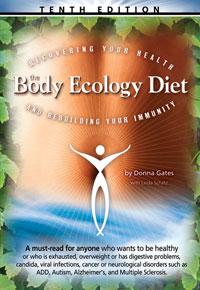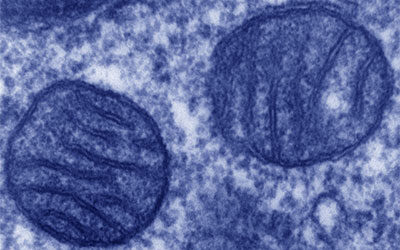What role does serotonin play in our bodies, and what are some natural ways to increase this neurotransmitter? Thanks!
Donna’s response:
What do health issues like depression, autism, Alzheimer’s, eating disorders, chronic fatigue and other immune-related disorders have in common?
They all have imbalances of Serotonin.
Serotonin (5-hydroxytryptamine or 5-HT), also called the “feel good hormone,” is a neurotransmitter responsible for a variety of mind (mood) and body functions. They are brain chemicals that communicate information throughout our brain and body. They relay signals between nerve cells, called “neurons.”
Neurotransmitters are essentially brain chemicals that communicate information throughout your brain and body. They send signals from one nerve cell to another. Some of the serotonin in our body is manufactured in the brain, and thought to affect almost ALL of the nearly 40 million brain cells.1 An even larger amount of serotonin is manufactured in your intestines in the enteric nervous system, also called the “gut brain.”
In fact, 90% of your serotonin supply is found in your digestive tract and blood platelets.2
Serotonin has a calming effect on your mind (the brain in your head) AND your body (your gut brain or the enteric nervous system lining your digestive tract).
You may feel butterflies, nausea or a sinking feeling in your gut… those “gut feelings” we hear so much about actually have a physiological basis! And nerve cells in your gut use serotonin to send messages (like gas, bloating and digestive pain) to literally train your brain, so that you can learn which foods to eat or avoid.3
When looking at the affects of serotonin, you become aware that there truly is a mind-body connection.
Serotonin affects your:4
- Mood
- Memory
- Ability to learn
- Appetite
- Arousal
- Aggression
- Impulse control
- Sexual desire
- Sleep
- Some social behaviors
- Heart
- Muscles
- Endocrine system (hormones)
According to Ray Sahelian, M.D., excess amounts of serotonin can cause relaxation, sedation, and a decrease in sexual drive. While a deficiency in serotonin is associated with low mood, lack of will power, and poor appetite control. Conditions like anxiety disorders, depression, improper social behavior, sexual aberrations, disturbance in the sleep-wake cycle, obesity, eating disorders, and chronic pain are associated with disruptions in serotonin.5
New research is showing that serotonin helps grow new brain cells throughout our lives.6
How Your Brain Makes Serotonin
Serotonin is considered a monoamine neurotransmitter, which means it is made by one amino acid. Amino acids are the building blocks of protein. There are two other monoamine neurotransmitters: dopamine and norepinepherine.
In order to produce serotonin, your body needs the amino acid tryptophan, which is an essential amino acid. Essential amino acids are not made by your body, so you must get them from your food. To produce adequate amounts of serotonin it is vital that you have plenty of tryptophan, however, increasing your tryptophan levels is not as easy as just eating more foods high in tryptophan. Tryptophan constantly vies with other amino acids like tyrosine, methionine, histidine, and leucine to cross the blood brain barrier and tryptophan loses the daily battle. Eating a high protein diet increases the blood levels of these other amino acids and results in an actual decrease in tryptophan… and therefore less serotonin.
Serotonin concentration in the brain is far more affected by what you eat than any other monamine neurotransmitter. A study on laboratory animals showed that serotonin could be increased by 10-fold with dietary supplementation.7
One study showed that it is this dietary connection that may explain why some people get angry, aggressive or combative when hungry.
Serotonin itself cannot cross the blood-brain-barrier, so while 90% of serotonin is found in your intestinal walls and blood platelets, the blood-brain-barrier does not allow it to enter your brain. Instead, your brain must make and use its own serotonin.6
What DOES go through your blood-brain-barrier is the tryptophan. While foods do not directly produce serotonin, there are a wide range of protein-rich foods that are excellent sources of tryptophan with turkey being the most well known. Dairy (like milk kefir), cheese, eggs, chicken, fish and red meat, nuts and seeds and brown rice are rich in tryptophan and therefore, contribute to the production of serotonin. Even some fruits and vegetables can contain tryptophan.
Of course just eating them is not enough. You also must digest these foods.
This may come as a surprise, but eating a high carbohydrate diet of bread, pasta and a bagel from Starbucks will actually help increase the level of tryptophan in your bloodstream. That’s because foods high in carbohydrates cause the release of additional insulin from the body which in turn wipes out the competing amino acids. This allows the absorption of more tryptophan into the brain and thus an elevation of serotonin. Basically when you eat a high carbohydrate meal, the insulin produced helps tryptophan stay in your blood longer, allowing it to enter your brain, causing serotonin to rise.6
This course of action may seem to work in the short term but as every Body Ecology Dieter knows… a high carbohydrate, low protein diet is the fastest way to an unhealthy, unhappier life and a rapid increase in their fungal and viral infections, acidic blood, earlier aging and misery.
I will address this issue and discuss some ways you can boost serotonin with a food and lifestyle program in part 2 of this column.
B6 and Serotonin
Another important contributor in the biochemical production of serotonin is vitamin B6. A deficiency in vitamin B6 could impair your brain’s ability to manufacture serotonin. Vitamin B6 is a water soluble vitamin that the human body cannot make. So again, this is an important vitamin to get from your food.
The good news is that beneficial microflora found in fermented foods and liquids also manufacture B Vitamins right down inside your intestinal wall where they are readily assimilated.
Some symptoms of vitamin B6 deficiency are similar to serotonin deficiency: depression, confusion and irritability.7
Serotonin-Related Disorders
Serotonin is related to a number of disorders, like depression, autism, Alzheimer’s, Obsessive Compulsive Disorder, eating disorders, alcoholism and bipolar disorder.
Each of these disorders has in common a disruption in the serotonin transporter (SERT), which shuttles serotonin from one part of the brain to another.
In one study on autism, one of the doctors said: “We were stunned because the cell just can’t ‘talk’ to these SERT proteins in a normal way,” ….Although it’s impossible to extrapolate from a molecule to a person, it is striking that these mutations, which do not allow proper communication with SERT, show up in a disorder fraught with communication problems.”8
It is the issue with serotonin transporters that have caused modern medicine to create serotonin re-uptake inhibitors (SSRIs), which keep serotonin out in the bloodstream and in the brain longer so that its function as a chemical communicator is further enhanced.9
I believe there are ways to boost serotonin naturally, without the long-term use of drugs that have side-effects. In part 2 of this column, I will outline an 11-step process to boost serotonin naturally. Please keep in mind that I am not recommending you throw out your prescription or your doctor’s advice! I recommend you educate yourself on these principles and work with a qualified health professional to guide you to the best solution for YOU.
The Happiness Hormone
Serotonin certainly seems like the key to happiness…and yet it’s important to realize that you do not need a degree in biochemistry to heal your body and your emotions.
I share this information to educate you on the “biochemical nature” of your body, but as you may have noticed, it is highly related to the foods you eat and the lifestyle you lead. Often it only takes simple changes in each to empower you to create much better health in your mind, your physical body and even your spirit.
For more information, read my book, The Body Ecology Diet. I wrote this book to help you strengthen your body and create a happier, healthier life as you learn how to harmonize with the principles of Nature. Little did I know at the time how much emotional healing would happen as well. Now science shows us why… and that’s where I’ll pick up in part 2 of this column!
Also be sure to read “The Two Key Barriers Preventing the Happiness You Deserve.”
Donna
Sources
1 Bouchez, Collette. Reviewed by Nazario, Brunilda, MD. Serotonin: 9 Questions and Answers. WebMD.
2ibid.
3Our Second Brain: The Stomach. Psychology Today.
4Bouchez, Collette.
5Sahelian, Ray, M.D. Serotonin : Is there a serotonin supplement?
6Bouchez, Collette, 5-Hydroxytryptophan: The Serotonin Solution.
7Best, Ben. Neurotransmitters.
Vitamin B6. Linus Pauling Institute at Oregon State University.
8Multiple Mutations May Explain Autism. NeuroPsychiatry Today Reviews. October 2005.
Wurtman, Judith J., PhD, and Marquis, Nina Frusztajer, MD. The Serotonin Power Diet.
9Cuccaro, M.L., Wright, H.H., Abramson, R.K., Marstellar, F.A., Valentine, J. Whole-blood serotonin and cognitive functioning in autistic individuals and their first-degree relatives. The Journal of Neuropsychiatry and Clinical Neurosciences. 1993; 5: 94-101.
Vitamin B6. The World’s Healthiest Foods.










0 Comments